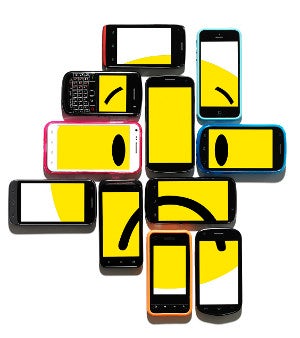LENS Business, Law, and Policy
Not Buying It
Do You Really Own Your Downloads?

Aaron Perzanowski, professor
Most consumers of digital products assume that once their purchases of music, e-books or anything else have finished downloading, they own the goods forever. But they may be surprised to learn that’s often not the case. We asked Aaron Perzanowski, JD, a professor at Case Western Reserve's School of Law and coauthor of The End of Ownership: Personal Property in the Digital Economy (with New York University professor Jason Schultz, JD), to offer some clarity on consumer rights in the e-commerce era.
When you buy a product online, what are you actually getting?
We are moving toward a model where the rights that consumers enjoy are all conditional—mean ing they are granted and can be taken away by another entity, like a movie studio or a publisher, that has ultimate control of how and if you can use the products you buy.
 IMAGE: David Arky
IMAGE: David ArkyThere are many examples of companies removing or constricting access to digital goods after purchase. In 2009, Amazon famously removed purchased copies of George Orwell’s 1984 from Kindle devices, and Apple continues to remove albums from the iTunes store at the request of record labels—which means, if you purchased the albums but haven’t stored them locally, they’re just gone.
What’s the fix?
One approach is for retailers to sell consumers the full set of rights they expect—though I don’t think that’s going to happen. The second is to make sure that consumers are informed. One option I’ve tested is creating a list of bullet points about what rights consumers acquire during a transaction and what rights they don’t. Even if they encounter it one time, they have a considerably more accurate view of their rights.





